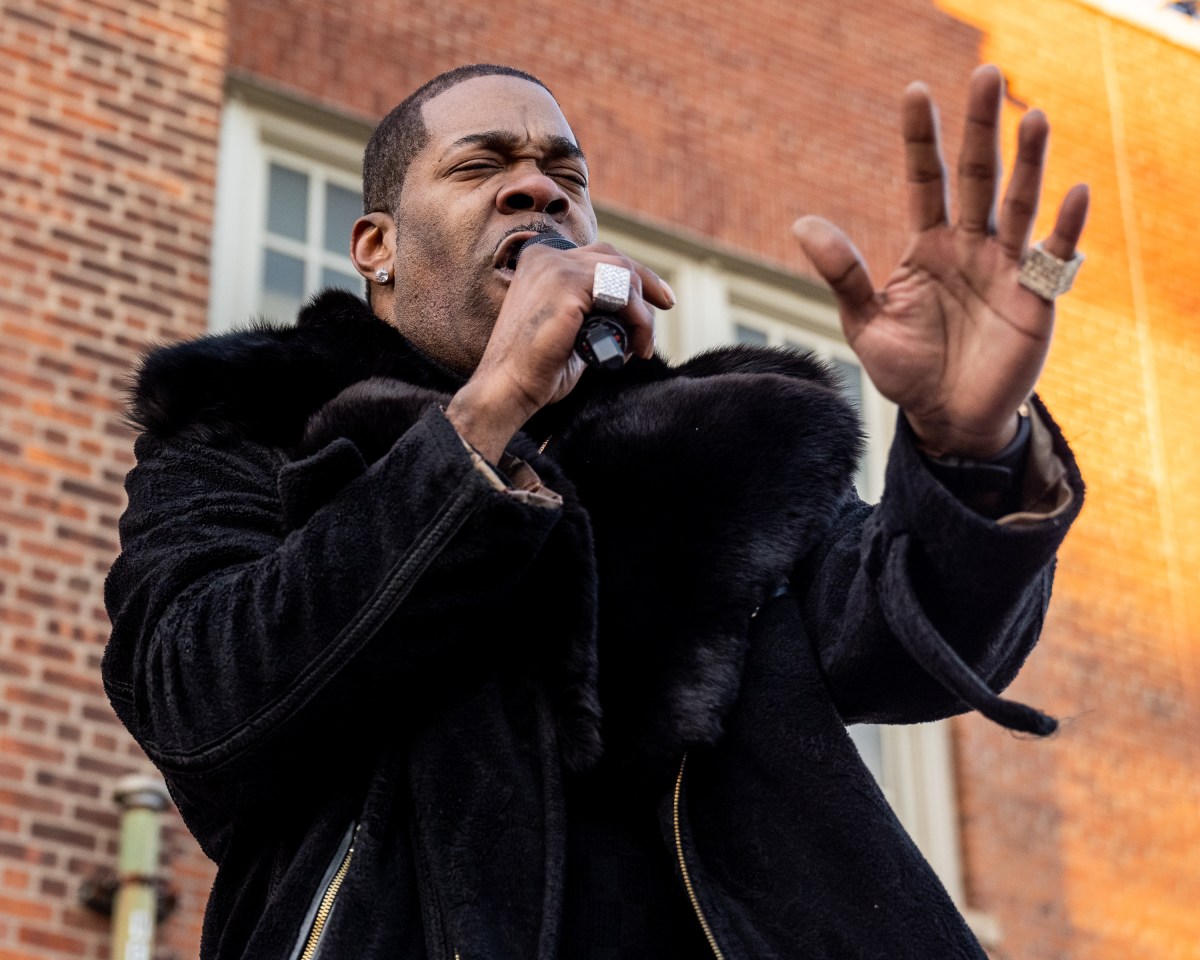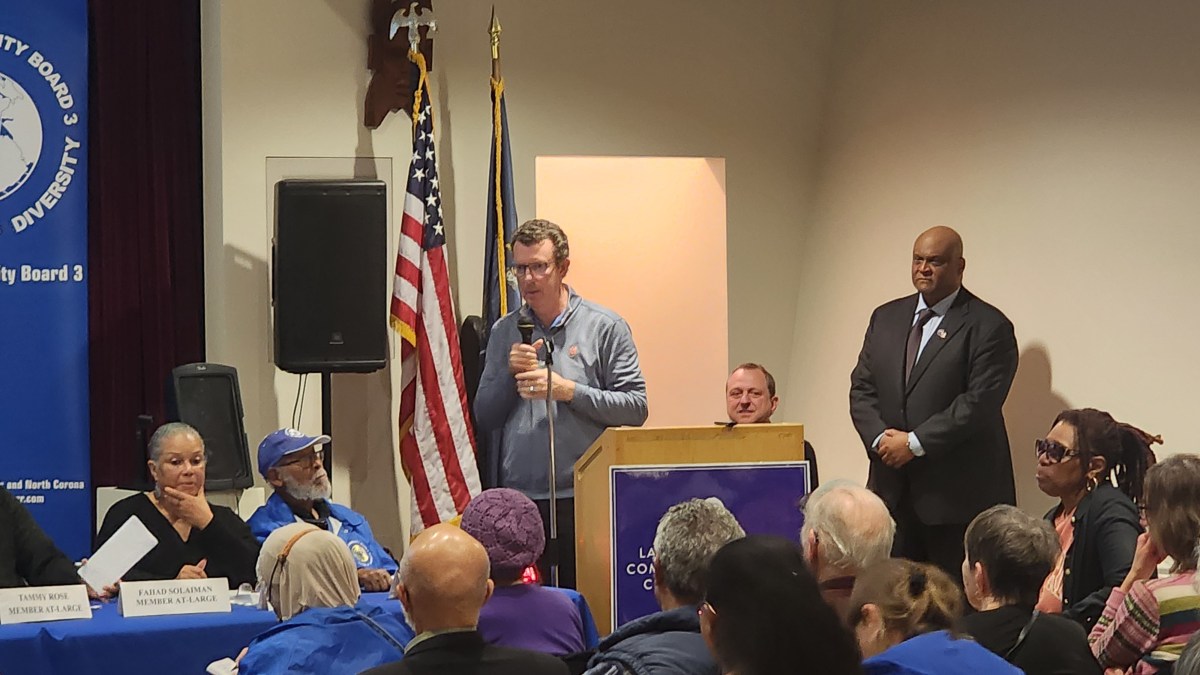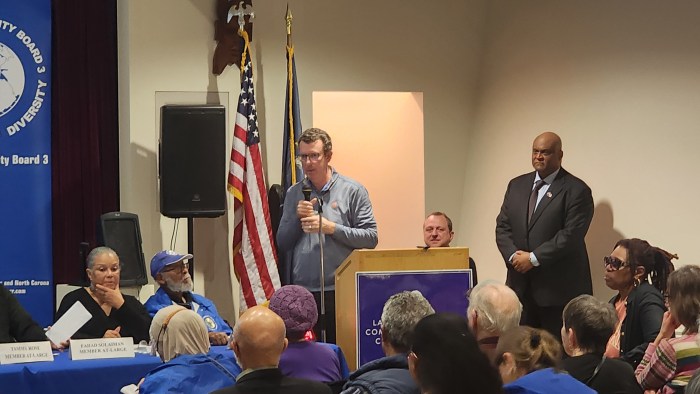
BY SHARON WOOLUMS | “Harry Smith at the Chelsea Hotel,” a black comedy with a feminist underbelly, was read at Dixon Place on Oct. 23 to a packed audience.
Set in 1970, it follows the mysteriously fraught love story of Bix and Gwinn, and moves on to scenes in the salon-like atmosphere of their friend Harry Smith.
It’s set in some famous hangouts of the era — Max’s Kansas City’s back room, a Chelsea Hotel suite art opening with few buyers, the El Quijote Restaurant, and later Harry’s room at the Chelsea, where he regales friends, artists, and other visitors with his wide-ranging intellect and abrasive wit. The dialogue is peppered with satirical talk about art, relationships, auras, and money.
Here wordplay is rampant, repartee razor-sharp. Though this is a portrait of the irascible and charming Harry Smith, author-director Terese Coe’s late friend and mentor, she describes what she sees as a feminist motif in it: “Gwinn’s salary as editor-writer with the underground press is a pittance. So-called friends begin joking that she should become a prostitute. She refuses and finds ways to make them look ridiculous in return. Harry teases her as well, but later relents when he sees she is not about to be railroaded into something she refuses to accept.”
“You couldn’t help but laugh, even when, inevitably, Harry insulted someone — even you — in the early 70s.” It was a time when “politically correct” speech had not yet been invented. Harry teases and taunts Gwinn, as do others, but Harry defends her.
Cain Perry plays Harry Smith; Cordis Heard is his companion Peggy Biderman; Brianna Fragomeni is journalist Gwinn; Brandon Culp is poet Claude Pelieu; Jody Prusan is actress Fania; Tim Mullins is Bix; J.L. Rey is the possible patron; and Nicholas-Tyler Corbin is Jerry. Cordis Heard, founder of Red Harlem Readers, was especially impressive in her role as Peggy Biderman.
Theater-goers who had known Harry personally said Ms. Coe’s introduction of Harry to the audience before the play was an authentic portrait of him: “Harry was a living lesson in how to survive as an artist and satirist at a time when young people needed that paradigm and practice. He was fond of playing Brecht-Weill’s Mahagonny, the opera from which he was making a Manhattan-based film, or else Woody Guthrie; he sometimes displayed his collection of Navajo costumes, his adeptness with string figures, and always his whip-smart wordplay and mockery,” she said.
“It was a subculture of the counterculture, and Harry had a huge circle of admirers,” Coe said. “Folk-rock musicians showed up as if on a pilgrimage, many of them aware he had put together the first compendious ‘Anthology of American Folk Music,’ which came out on Folkways in 1952. They said it had influenced their music.” In fact, it’s often agreed that Harry Smith’s “Anthology” paved the way for the entire folk music revival of the early 1960s as well as for the development of folk-rock music.
































